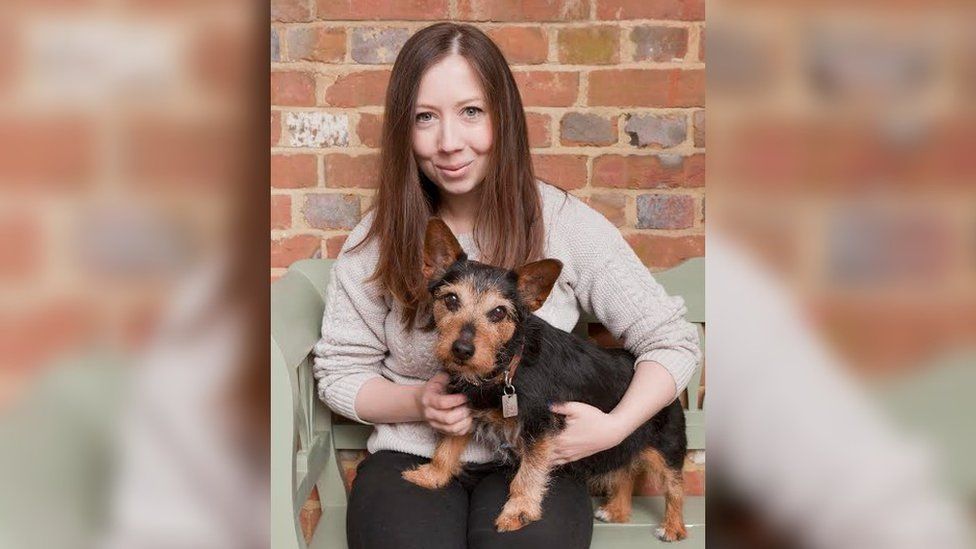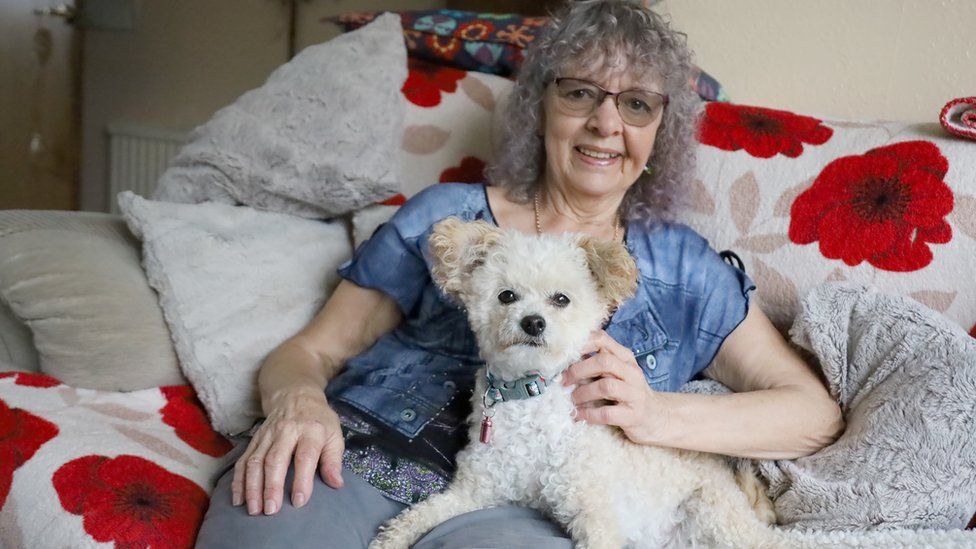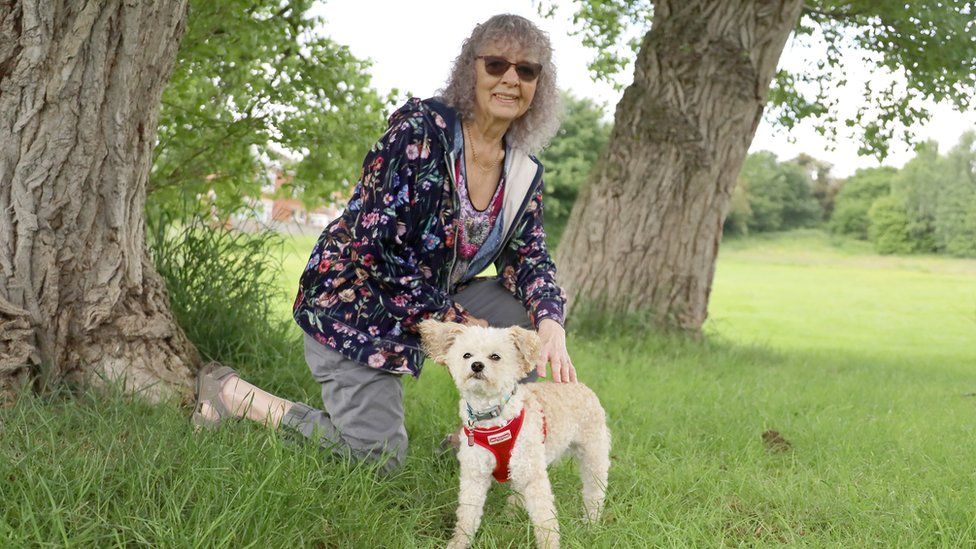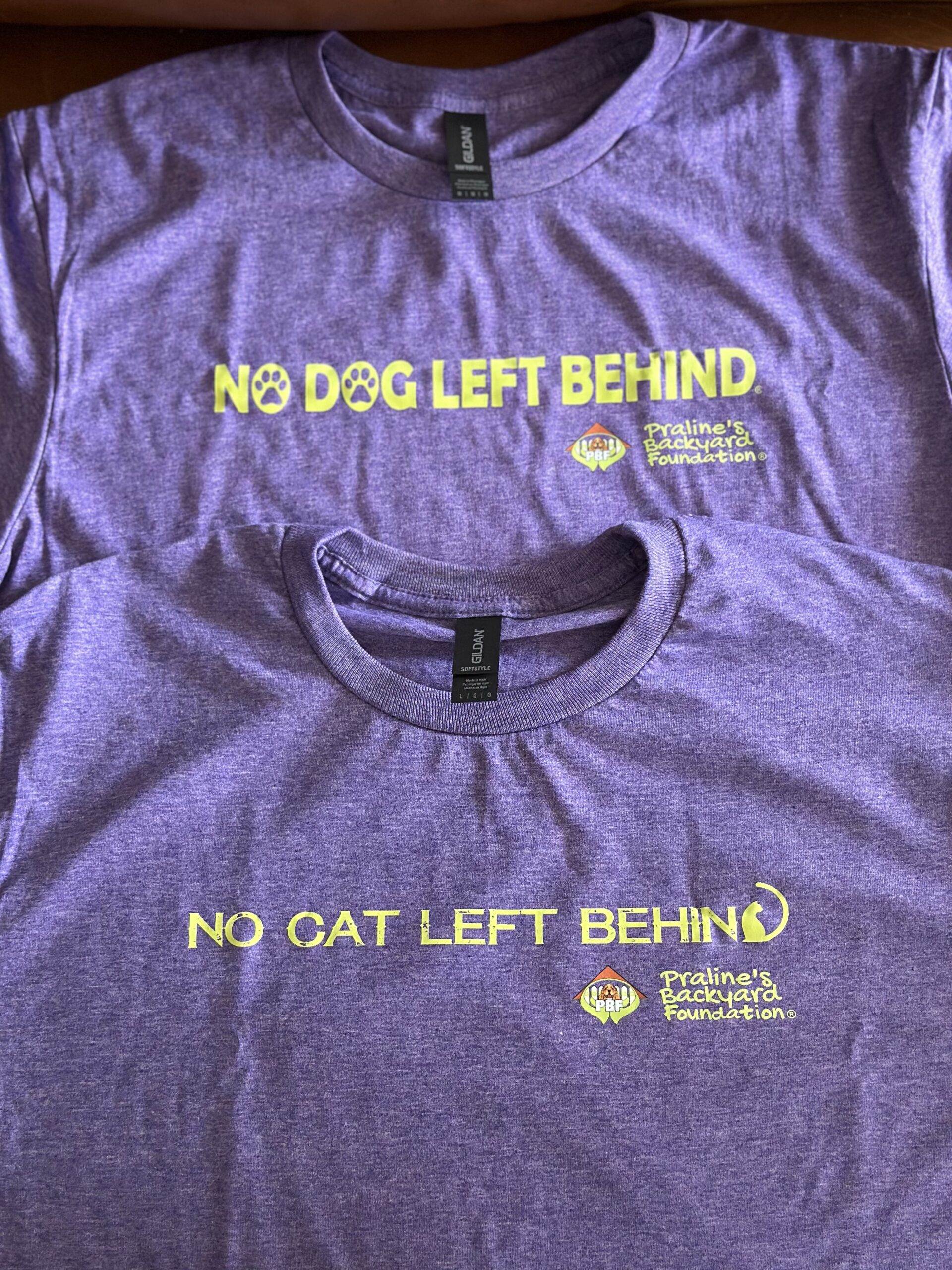In 2018, Carmel decided to open up her home to the pets of domestic abuse victims.
She became a volunteer for the Dogs Trust Freedom Project – a dog-fostering service for people fleeing abuse.
Most refuge centres do not allow dogs, and victims can be reluctant to leave without their pets, so the project enables them to escape.
Carmel, from London, has fostered 12 dogs, including a pug, a Staffordshire bull terrier, and a greyhound – caring for them until their owners find stable housing.
‘Like one of the children’
“You’re helping someone in a really difficult situation to have a bit of respite,” she says.
“People stay for their pets because they’re like one of the children – you couldn’t leave a child in that kind of situation and you can’t leave a dog.”
Funded by donations to the Dogs Trust, the Freedom Project was launched in London in 2004 and has now expanded its coverage across the country.
The team works directly with abuse victims, and takes referrals from refuge centres and local authorities.
When someone is planning to leave an abusive relationship, the team waits nearby in an unmarked vehicle to collect the dog and place it with a foster carer.
The project has now fostered 2,195 dogs, and supported over 1,880 abuse victims.

Amy Hyde, deputy head of outreach projects for the Dogs Trust, says it is important to collect the dog quickly.
“If the dog is left with the abusive person, there’s a fair chance it will be quite seriously harmed,” she says.
“Once we have collected the dog, we match them with a volunteer in a different part of the country so there’s no safety risks of the dog being recognised.”
Cigarette burns
In a 2019 Pets & Domestic Abuse Survey, 97% of professionals working in the sector said pets were often used as a means of controlling someone experiencing domestic abuse.
Nearly 50% were aware of domestic abuse cases where a pet had been killed.
Ms Hyde says people using the Freedom Project tell similar stories.
“If they were to leave or see friends, they’d be told something would happen to the dog – or it could be more subtle.” she says.
“One survivor said her abuser would leave the front door open every time she left the house, so when she returned the dogs were loose on the street.
“She stopped going out to see anybody because she was so scared the dogs would get hit by a car or go missing.”
When dogs are taken in by the Freedom Project, they are often suffering injuries such as cigarette burns.
One dog even had a serious stab wound to the head.

Since 2005, Pip, from Yorkshire has fostered 52 dogs and says most adapt easily to their new home, despite any trauma.
“It’s amazing how quickly they get used to change,” she says.
The Freedom Project covers all the financial costs and a team member visits each month to check the fostering is going well.
Once the owner has found suitable accommodation, the dog can be returned to them.
“It can be sad to say goodbye but it’s good to know they’re going back to a family who really loves them,” says Pip.
Though there is strict confidentiality, foster carers often receive thank-you letters from survivors via the Freedom Project.
“I got one that said she would never have had the nerve to walk out on her partner if it wasn’t for someone looking after her dog,” says Pip.
This year, the service has seen a 40% increase in demand, with more than 100 dogs placed in foster care.

“Like a lot of domestic abuse organizations, we saw a big impact with the pandemic,” says Amy.
“Since restrictions have eased, we’ve seen a huge increase in referrals, and we’re always looking for more foster carers.”
Pip encourages anyone with a love of animals to apply.
“If you’ve got plenty of time on your hands, and you want to give to dogs, I can’t think of a better way.”




One Response
Very nice post. I definitely appreciate this site. Stick with it!